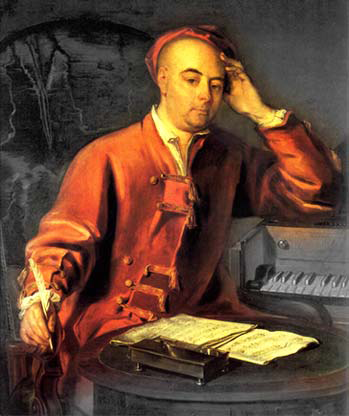Choral Handel and Vivaldi in the spotlight with Music of the Baroque

Of the many seeming miracles of George Frideric Handel’s music, perhaps the most precocious is his Dixit Dominus. Written at age 22, it shows a startling leap forward for the young composer, with its flamboyant originality.
Handel’s Dixit Dominus was the major work at Music of the Baroque’s choral program, paired with Vivaldi’s Gloria and heard Sunday evening at First United Methodist Church in Evanston.

As conductor Nicholas Kraemer pointed out in his engaging introduction, it seems that in this early work Handel was intent on setting himself apart from his older colleagues and showing just what he could accomplish.
Even to jaded 21st-century ears, Handel’s vividly characterized choral setting can be jolting. The Biblical force of Sede a dextris meis donec ponam, the emphatic staccato of Juravit Dominus—one can glimpse Messiah on the horizon—and the dizzying lightning flood of words in Tu es sacerdos all show Handel’s take-no-prisoners approach to painting the text with full force and dramatic impact.
Kraemer led the orchestra and chorus in a vividly dramatic, richly characterized performance that consistently put across the imagination and audacity of Handel’s music.
What kept the performance earthbound was the lack of gleam and distinction in the solo singing, which, given largely to chorus members, hovered between adequate and lackluster. Soprano Kimberly McCord showed familiarity with Baroque style but her thin, fluttery tone and wavering pitch were repeated issues and soprano Juliet Petrus’s intonation proved shaky as well.
Mezzo Nina Heebink provided the best solo contribution with her polished and expressive rendering of Virgam virtutis. Tenors Stephen Noon and Klaus Georg were capable in their brief assignments and baritone Kevin Keyes’ firmly focused singing made one wish he had more to do.
The concert opened with Vivaldi’s Gloria in D major, the most familiar of his three settings.
Though composed a decade after the Handel, Vivaldi’s popular Gloria is a more traditional work, conservative in its style–especially compared to the composer’s operas–but none the worse for that, showing Vivaldi’s bracing energy and melodic distinction.
Kraemer led a lively performance, with notably fleet, virtuosic choral singing in the opening Gloria enhanced by Barbara Butler’s gleaming trumpet and a notably thrilling account of the fugal finale. The orchestra playing was a consistent pleasure throughout, notably Robert Morgan’s pastoral oboe solo in the Domine deus and Barbara Haffner’s fine cello work. But here too the solo singing was variable, apart from Heebink’s nimble Qui sedes ad dexteram.
The non-vocal centerpiece was Handel’s Concerto grosso in B flat, Op.6, no. 7. In this, one of the less often heard of Handel’s 12 tuneful works in the genre, Kraemer showed a fine hand, bringing expressive poise to the Largo movements, stately poise to the Andante and avoiding the temptation to inflate the closing Hornpipe, keeping it in scale with lightly sprung rhythms.
Sunday’s program provided a timely progress report on how the MOB vocal ensemble is faring under new chorus director William Jon Gray. While the choral singing was vital, skillfully balanced and neatly articulated, I would still like to hear more consonants and clarity to the words. No doubt, Gray’s singers will continue to improve as the season unfolds. They’ll have a major test with Music of the Baroque’s presentation of Bach’s Christmas Oratorio next month.
The program will be repeated 7:30 p.m. Tuesday at the Harris Theater. baroque.org; 312-551-1414.
Posted in Performances


